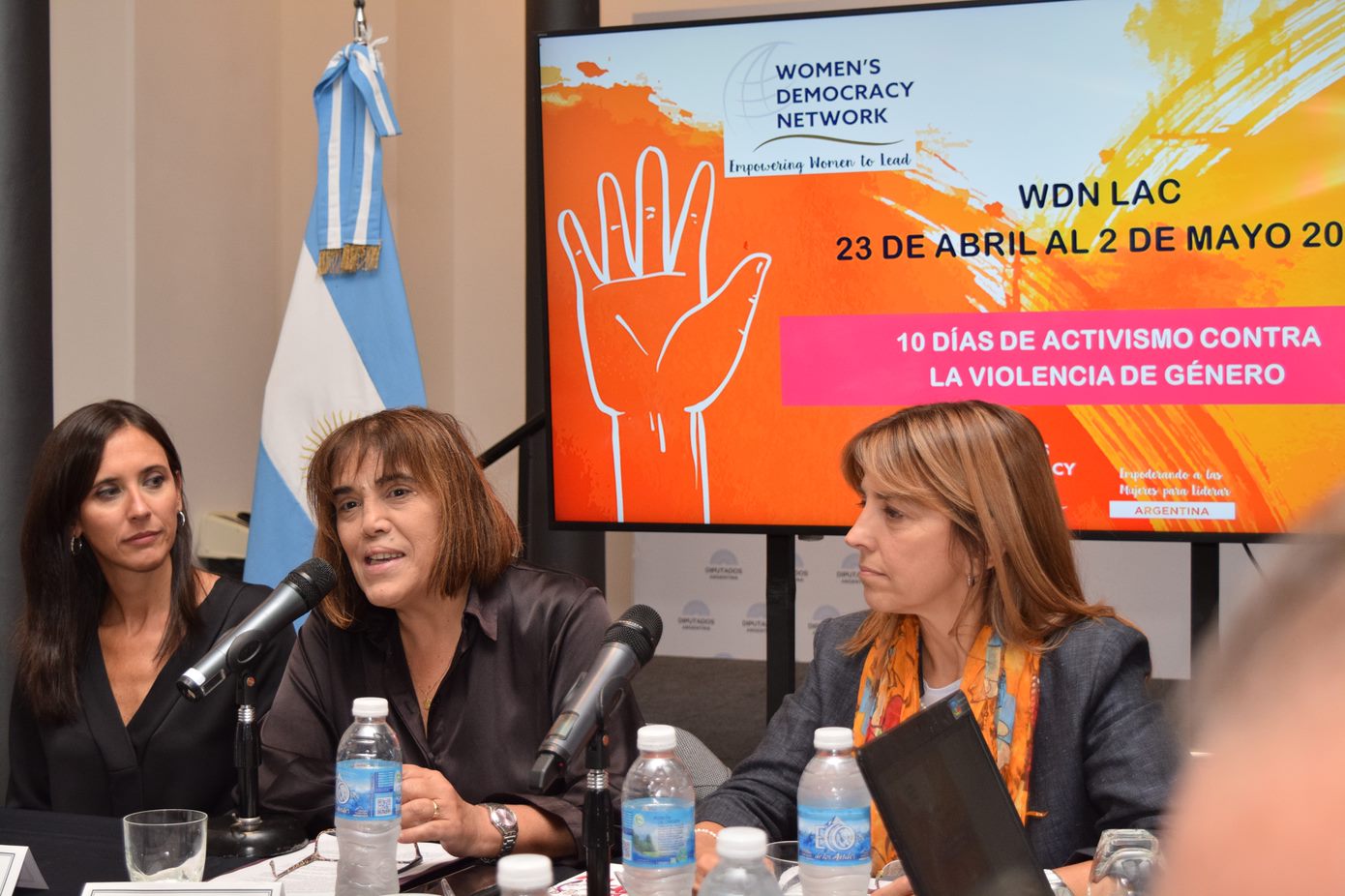10 Days of Activism Against Gender-Based Violence in Latin America and the Caribbean

November 25th marks the United Nation’s International Day for the Elimination of Violence Against Women, a day created to emphasize the grave consequences of this form of violence and encourage global actors to address it. Members of IRI’s Women’s Democracy Network (WDN) are raising awareness of this problem and proposing solutions. According to the United Nations Development Program (UNDP), in Central America, two out of every three women murdered are killed due to their gender. This year, WDN coordinated advocacy and social media campaigns that encouraged dialogue on violence against women amongst government officials, political parties and citizens across Latin America.
Gender-based abuse can take many forms, including financial and psychological, but physical violence against women in particular has the capacity to create long-lasting harm on its own. According to UN Women, 35 percent of women worldwide have experienced physical and/or sexual violence. This violence against women not only causes physical and emotional harm, it blocks women from participating fully in society and renders them voiceless. Without the voices of women, policies and laws fail to address matters that affect the whole of society. Democracy is compromised when half the population is prevented from full participation in public life.
Latin American and Caribbean countries are taking steps to address gender-based violence. Laws banning femicide or domestic abuse are becoming more widespread, and much of the region has ratified the UN Convention on the Elimination of All Forms of Discrimination against Women. From 2012 to 2016, the number of LAC countries with specific national action plans on violence against women rose from 9 to 45 percent.
To strengthen these efforts, WDN’s Latin America and Caribbean regional network (WDN-LAC) hosted “10 Days of Activism against Gender-Based Violence,” a coordinated advocacy campaign in nine countries. From April 23 to May 2, 2019, WDN-LAC members engaged government leaders, political party members from across the political spectrum and community members on these issues. WDN-LAC members also launched a social media campaign to help raise awareness using the hashtag #EscuchanosAhora or #HearUsNow.
Colombia currently faces various obstacles to women’s political participation including violence and discrimination. Women who participate in political life, including as elected and government officials, are often not taken seriously or treated respectfully. WDN’s regional partner Red de Empoderamiento de las Mujeres de Cartagena (Women’s Empowerment Network of Cartagena) held a multi-party roundtable in Cartagena that brought together 40 participants (men and women), including 30 representatives from 10 political parties and 10 civil society members from 10 organizations.
To address these obstacles, the roundtable engaged specialists from UN Women Colombia, the Netherlands Institute for Multiparty Democracy (NIMD) and the National Electoral Council in panel discussions on women’s political participation. Some of the prominent topics included the failure, as of 2018, to exceed 20 percent female membership in Colombia’s Congress, the lack of efficient spending of government resources for leadership training for women and the need for rules that protect women and punish those responsible for violence and discrimination. All parties in attendance signed on to a set of principles to promote women’s participation in politics, including recommendations to increase transparency in party resource management.
Brazil has the highest number of femicides in Latin America and the Caribbean; out of 23 LAC countries examined, 4 out of every 10 femicides which took place in the region in 2017, occurred in Brazil. In response, WDN-Brazil’s forum on “Economic Autonomy and Violence against Women” raised awareness of gender-based violence and increased dialogue among government officials, civil society organizations and service providers, and hosted speakers from various organizations, including Women in Focus, Deputy Secretary of Policies for Women of the Federal District Vandercy Camargos and Director of WDN-Brazil Silvia Rita Souza. Participants delivered a list of recommendations to the Women’s Special Prosecutor’s Office containing suggestions for an expansion of public daycare centers, more training for women in the labor market and the creation of laws allocating a percentage of job vacancies in public companies for women. And, other NGOs across the country are planning to host similar events.
The Women’s Democracy Network’s member-driven “10 Days of Activism against Gender-Based Violence” campaign was a step toward ensuring that recent legal advances to end violence against women yield long-lasting results for the entire Latin America and Caribbean region. Raising awareness of the widespread consequences of this issue is important not only today, but every day. The continued creation of programming, like WDN’s 10 Days of Activism campaign, will not only permit, but also encourage, a safer future for women, increased female participation in society and a stronger democracy for all.
Top